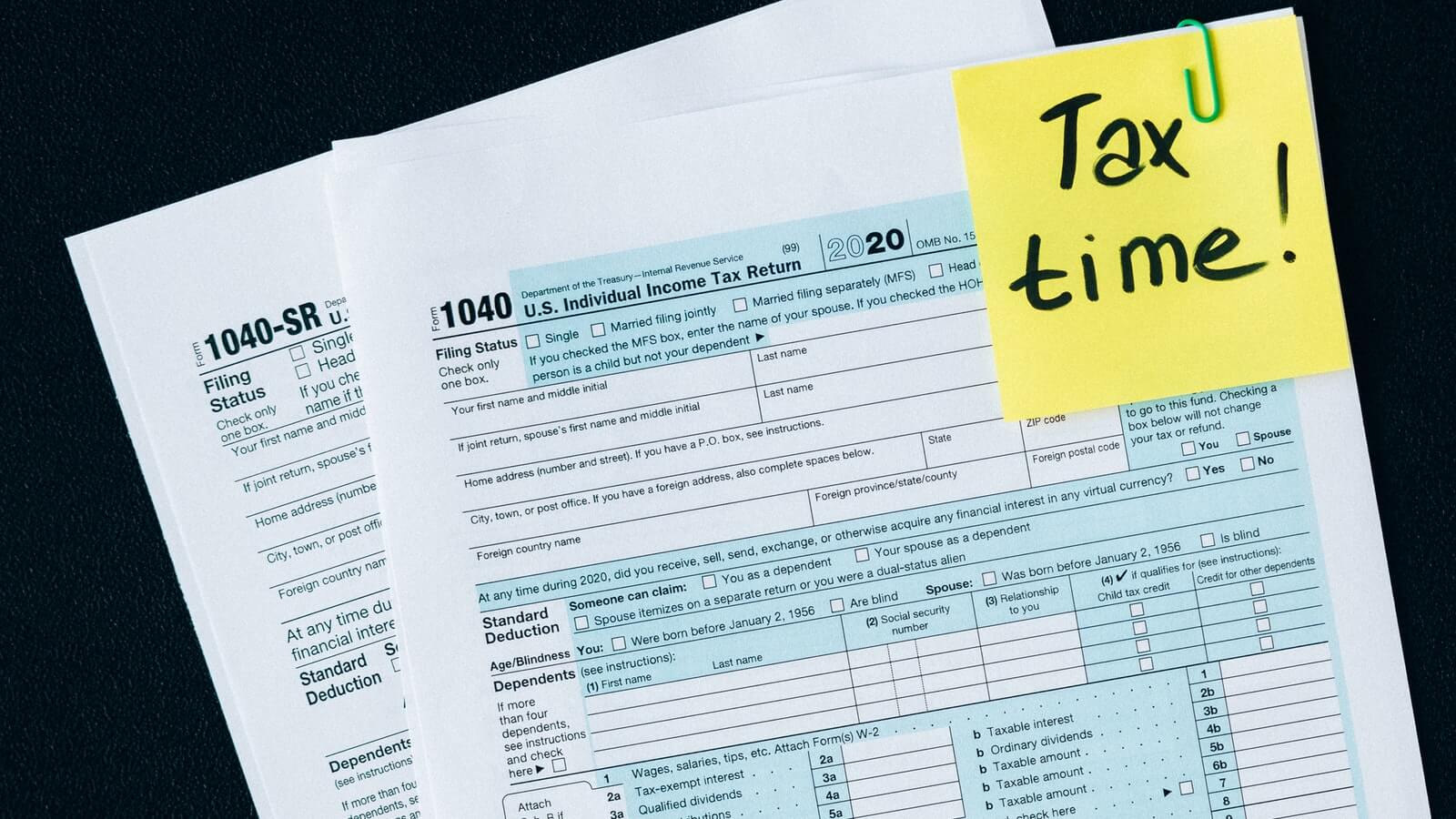Missing a deadline can be nerve-wracking, but tax extensions are nothing to worry about.
Not able to file your tax return by Tax Day? Surprisingly, that's not actually a big deal.
You should get your return in on time if you can, but it’s not the end of the world if you can’t. It’s actually sometimes better to file an extension than to pay on time, especially if you’re a business owner.
Tax Day usually falls on April 15 for individuals and March 15 for businesses taxed as S corporations and partnerships. Those are also the deadlines to file a tax extension. When you file an extension, the deadlines to file your return are usually pushed back to Oct. 15 and Sept. 15, respectively.
The most important thing to know about tax extensions is that they simply give you more time to file your tax return. They do not give you more time to pay.
As you’ll see, you’re better off filing a tax extension than filing your return by the deadline most of the time. Too many business owners view tax extensions as a bad thing and try to avoid it at all costs when they should be embracing them. You don’t always have all the information and forms you need to file your tax return on time — so an extension is often necessary.
Contents |
| What does a tax extension do? |
| Is it OK to file a tax extension? |
| Common reasons to file a tax extension |
| How to file a tax extension |
| What happens if you don’t file or pay your taxes on time? |
What does a tax extension do?
A tax extension pushes back your deadline to file your tax return with the IRS. That deadline, called Tax Day, typically lands on April 15th for individuals and March 15th for S corps and partnerships. Both your tax return and any payments owed are due on these deadlines.
All a tax extension does is give you more time to file your return. There is no extension to pay your taxes.
Although your tax payments are due on a certain date, you don’t have to pay them all at once. The IRS offers short-term and long-term payment plans for both individuals and businesses. There are costs associated with applications, payment method, and setup depending on which plan you choose. You can apply for an individual or business payment plan directly from the IRS website.
Is it OK to file a tax extension?
Filing an extension is perfectly fine — and sometimes necessary. Many business owners think of filing for an extension as admitting to wrongdoing, but that couldn't be further from the truth.
If you work with a CPA to file your tax return and they say they need to file an extension, it’s no cause for concern. Millions of people file extensions every year, and it’s not something the IRS looks down upon for any reason.
Common reasons to file a tax extension
Frankly, the IRS doesn’t care about why you need an extension. You don’t need to explain your reasons to the IRS at any point. But these are a few of the most common reasons why someone might.
You’re waiting on tax documents
You need to report your income on your tax return, which means you need your W-2, any K-1s and any 1099s ready when you file. You might not always receive those by Tax Day. In that case, it’s best to file a tax extension so you can report your income accurately.
You want to avoid late penalties
There are failure-to-file and failure-to-pay penalties. People who owe taxes will face penalties on the tax they owe if they file late. Filing for an extension can help you avoid the failure-to-file penalty. However, you can only avoid the failure-to-pay penalty by paying your taxes on time.
You want to make more retirement contributions
Depending on your type of retirement account, filing for an extension could let you contribute more into it. If you have a Solo/Self-Directed 401(k), a 401(k) through the business you own, or a Simplified Employee Pension (SEP), you could make contributions until you file your return. But with plans like a traditional IRA, the deadline to contribute is Tax Day.
Your tax advisor doesn’t have enough time
Every business should have a tax advisor to file their return for them. It’s time-consuming and easy to mess up, which could cost you in penalties. But your tax advisor probably works with a lot of clients, and they often can’t get all their returns in by the deadline. It’s better to get the extension and get your tax return right than it is to rush it with the wrong information. They might also not be able to even if they wanted to because the IRS may not have approved certain forms to be e-filed, and paper filing takes longer.
You don’t have enough time
If you’re filing your tax return on your own and the deadline is creeping up, you should file a tax extension. It’s difficult enough to do it without the help of software or a tax professional, and an imminent deadline only makes it harder.
How to file a tax extension
Whether you’re filing as an individual or a type of business, the process for filing a tax extension is largely the same — but with different forms.
First, you submit your federal extension form. You would then submit an extension for your state if it requires one. Florida requires a state tax extension, Form F-7004, if you’re filing a partnership tax return.
Once your extension is approved, you have until the new deadline to submit your actual tax return without a penalty.
The process differs step-by-step between individuals and different business entities. Both types of extensions should be filed at the same time if you need to extend both.
Individuals
If you’re not an independent contractor or a business owner, you’re likely fine using popular software like TurboTax or TaxAct to file your tax extension. You need to estimate your tax liability for an extension, and it’s much easier to do that for an individual with regular wages than it is for contractors or business owners.
However, if you are a business owner or a contractor, working with a tax advisor is likely a good option for you when filing your tax extension. It may take a lot of extra steps to estimate how much you’ll owe in taxes, which the popular software sites aren’t well-designed for.
You can follow the steps below, or use tax software, which may be able to walk you through the extension process on their site.
Step 1: See if you qualify for IRS Free File
IRS Free File is a program that directs taxpayers to companies that will file their tax returns for free. However, only those with an adjusted gross income of $72,000 or less qualify. You can view the list of IRS Free File partners online.
If you use Free File, it will walk you through the rest of the process of estimating your taxes and filing your extension. If you don’t qualify, jump to Step 2 to start the process.
Step 2: Estimate your tax bill
Form 4868 requires you to find out your tax balance ahead of time. You can do this with software like TurboTax or with the help of your tax advisor. Making quarterly estimated payments can also make figuring out your tax liability easier.
Step 3: File Form 4868
Form 4868, the federal tax return form for individuals, is a relatively simple IRS form once you find out how much you owe. The main things you need to fill out are your name, address, Social Security number and estimated taxes.
You might not know how much you owe the IRS by the time you're filing an extension — which is OK. The IRS still allows you to file for an extension even if you can't pay your total tax due. Just pay as much as you can at the time of filing your extension.
| 📮 Note: Be sure to attach a return receipt and use certified mail for everything you send to the IRS. |
Step 4: File any state extension forms
Some states require you to file additional forms on top of Form 4868, which is a federal form. If you’re using a site like TurboTax to submit your tax extension, it will let you know if your state requires one. You can face penalties if you don’t file your state’s extension forms.
Florida doesn’t require a state extension form for individuals, but it does require state extension forms for some business entities.
Step 5: File your tax return by new deadline
Once your extension goes through, don’t just forget about your tax return. Individuals filing Form 1040 have until Oct. 15 to submit it after the extension.
Businesses (S corporations and partnerships)
Business entities don’t have access to something as quick and easy as IRS Free File. As a business owner, many of the popular sites individuals use to file their tax extensions, like TurboTax, aren’t designed to accommodate your more complex tax situation.
The steps for filing a tax extension for partnerships and S corporations are a bit different from filing as an individual. Partnerships and S corps normally don’t have a federal tax liability, so there’s no need to estimate your tax bill. But there are a few differences between them.
Step 1: File Form 7004
Businesses must use Form 7004 to request a tax extension, which you can mail or e-file. As long as your business is structured as an LLC taxed as an S corp or partnership, you can list $0 as your balance due on this form since your business is pass-through entity and you don't pay taxes from your business.
Step 2: File any state extension forms
Some states require you to file additional forms on top of Form 7004, which is a federal form.
In Florida, partnerships and C corporations must file state extension forms. S corporations do not. You can use Form F-7004, which is due March 15. Some states will require a payment along with your extension for it to be valid, but Florida does not.
You can face penalties if you don’t file your state’s extension forms. To make sure you’re filing all the necessary forms with the necessary payments, talk to your tax advisor.
Step 3: File your tax return by new deadline
Once your extension goes through, don’t just forget about filing your tax return. These are the forms you need to worry about if your business is taxed as a partnership or S corporation in Florida:
- Form 1065: This is the tax return form for partnerships. The deadline to file Form 1065 after an extension is Sept. 15.
- Form 1120-S: This is the tax return form for S corporations. The deadline to file Form 1120-S after an extension is Sept. 15.
- Form F-1065: This is the Florida tax return for partnerships that you must file with your federal tax return if one of your partners is a corporation (C corp). The deadline to file F-1065 after an extension is October 1.
What happens if you don’t file or pay your taxes on time?
Well, if you're owed a refund ... nothing! Shockingly, the IRS does not tend to feel particularly urgent about getting your money back to you. They will happily hold onto your refund indefinitely.
However, if you owe taxes, you can face penalties for not filing or paying on time.
The IRS refers to these as the failure-to-file penalty and the failure-to-pay penalty. It’s important to file or ask for an extension on time because the failure-to-file fee is 10 times that of the failure-to-pay fee.
- Failure-to-file: 5% of the unpaid taxes for each month you’re late
- Failure-to-pay: 0.5% of the unpaid taxes for each month you don’t pay
You also have to pay interest on any tax balance you have after the deadline. If both the filing and payment penalties are applicable, you’ll pay a 5% interest rate each month in total.
Since the penalties for failing to file are much larger than they are for failing to pay, if you need extra time, your priority should be filing for an extension. That can give you an extra six months to collect any documentation you still need and finish your return.
However, more time to file doesn't mean more time to pay. In the event of an extension, you should make an estimated payment if you want to avoid any penalties.
The bottom line
Millions of Americans file a tax extension every year, but many still think of it as something to avoid.
But filing your tax extension can be a better option than rushing to submit your return by the deadline when you’re waiting on important tax documents. Whatever your reason is, it’s OK — the IRS honestly doesn’t care. As long as you file your extension on time, you can avoid penalties.
Even though filing a tax extension gives you more time to file your tax return, your tax payments — if you owe any — are always due by Tax Day. If you can’t afford to pay all your taxes at once, there are payment plans available.
Need help filing your tax extension? Schedule a free call with a DiMercurio Advisors team member today and find out how you can take that responsibility off your plate and make tax season a breeze.







